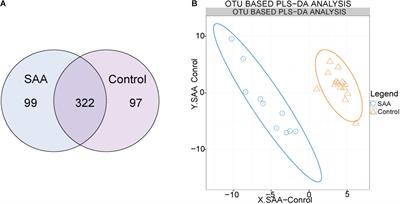REVIEW
Published on 08 Sep 2021
Gut Microbiota-Mediated Modulation of Cancer Progression and Therapy Efficacy

doi 10.3389/fcell.2021.626045
- 4,148 views
- 9 citations
29k
Total downloads
109k
Total views and downloads
REVIEW
Published on 08 Sep 2021

ORIGINAL RESEARCH
Published on 23 Aug 2021

REVIEW
Published on 29 Jul 2021

REVIEW
Published on 15 Apr 2021

REVIEW
Published on 02 Mar 2021

ORIGINAL RESEARCH
Published on 04 Feb 2021

ORIGINAL RESEARCH
Published on 17 Dec 2020

ORIGINAL RESEARCH
Published on 13 Nov 2020

ORIGINAL RESEARCH
Published on 21 Oct 2020

REVIEW
Published on 22 Sep 2020

ORIGINAL RESEARCH
Published on 01 Sep 2020

